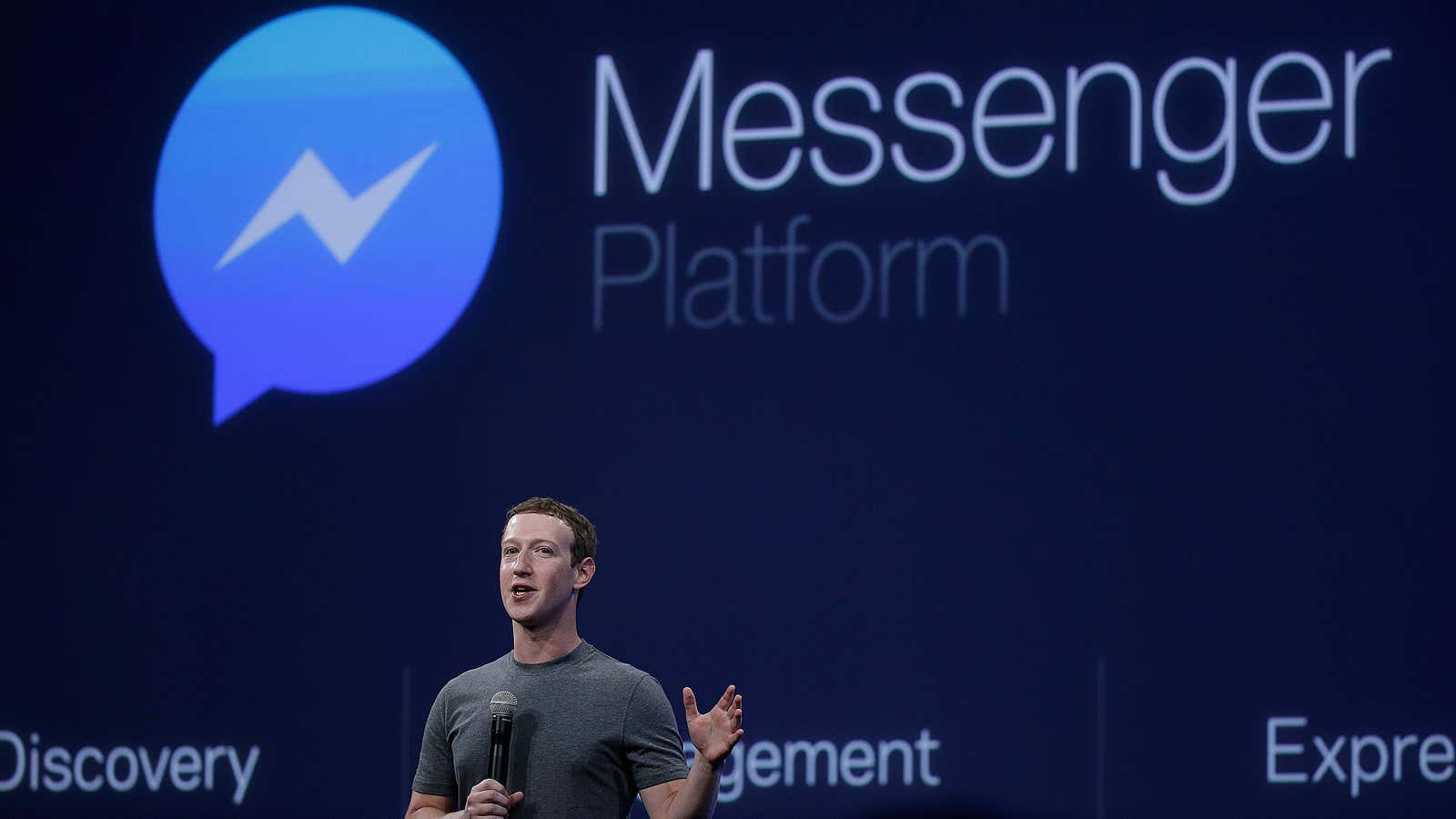If you needed proof that Messenger is Facebook’s breakout hit, consider this: The chat app has more downloads since 2012 than Facebook’s main app.
From 2012 to the first half of 2015, Messenger accumulated 646.6 million downloads, according to data provided by app analytics firm Sensor Tower. During this same period, the social media network’s flagship Facebook app racked up 568 million downloads. As indicated in the chart below, none of the other apps that Facebook has published comes even close in popularity.
(Note: The data do not include downloads for Instagram and WhatsApp, which are published under their own brands.)
To look at these numbers another way, Facebook’s other apps collectively amassed 637.5 million downloads—about 9 million fewer than Messenger alone.
One thing to keep in mind is that many of the apps that Facebook has released come from its Creative Labs division. For this group, the goal of building apps like Paper (a de-cluttering app for reading news stories shared by friends), Slingshot (its Snapchat copycat), or Rooms (chat rooms) isn’t necessarily to drive downloads, but to glean insights that might eventually inform the Facebook experience. Some of what the company learned from Paper, for example, ultimately shaped Facebook’s instant articles, a feature for news organizations to publish directly on the social network.
It’s interesting to remember people’s outrage last year when Facebook removed chatting capabilities from its flagship app, forcing those who wanted to message their friends on mobile to download the standalone Messenger app. Despite those complaints, Messenger quickly soared in the app rankings and has largely been the No. 1 app in the App Store and Google Play. The app currently has more than 700 million monthly active users.
It’s now become abundantly clear what motivated the move. Facebook had a vision to build Messenger into a platform open to third-party integrations. As such, users can now send money to friends, chat with customer service, and express themselves with GIFs and stickers. Facebook also is reportedly readying a digital assistant that will be baked into Messenger. If Facebook hadn’t split out Messenger, most of these things would have been trickier to incorporate, or would’ve easily gotten lost, within the main Facebook app.
To continue Messenger’s momentum, the company built a web version for browsers, and in June opened up registration so that people without Facebook accounts can also use the app. It’s evident that Facebook envisions Messenger to be bigger than Facebook itself.
Clarification (June 17): This story’s headline and lead sentence originally said that Messenger was bigger than all of Facebook’s apps combined. As the story later notes, that excludes Facebook’s Instagram and WhatsApp, so the wording has been changed to reflect that.
